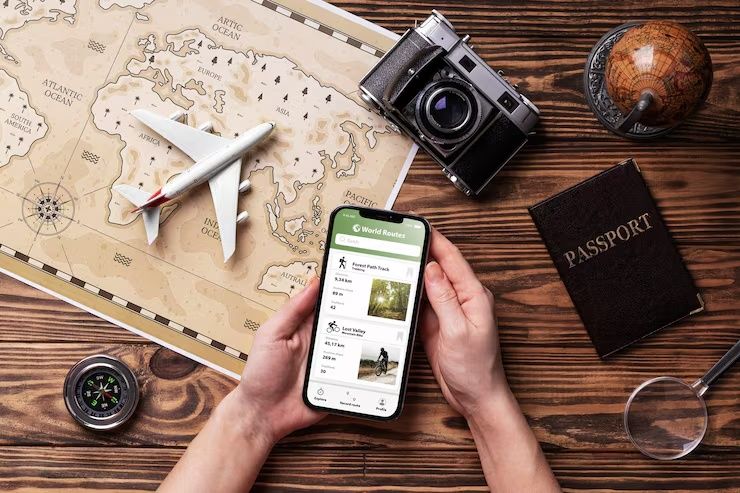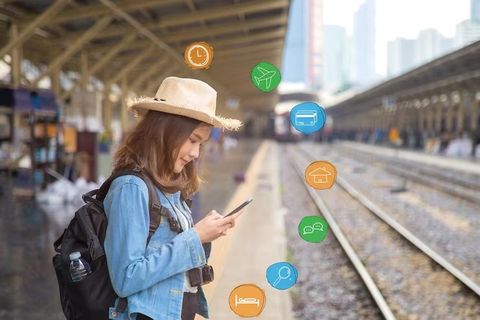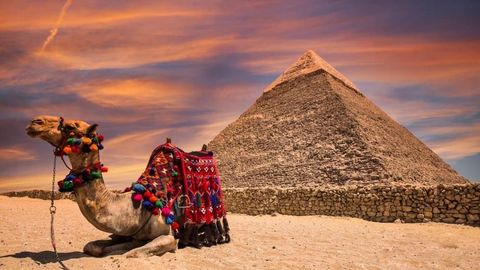Explore Smart Travel in India: A Complete Guide to the Latest Travel Apps
Smart travel in India refers to the use of digital tools, mobile apps, and intelligent systems that make travel easier, faster, and more efficient. With the rapid growth of smartphones and internet connectivity, travelers today use technology to plan, navigate, and experience their journeys.
These tools include apps for transportation, accommodation, navigation, language translation, and itinerary management. Smart travel exists to simplify complex travel arrangements and improve convenience for both domestic and international travelers. From booking trains on Indian Railways to navigating cities using GPS-based platforms, smart travel represents a shift toward technology-driven tourism.
Smart travel matters because India has one of the world’s fastest-growing travel and tourism industries. Millions of people move daily across cities and states, relying on technology to make their trips smoother and more informed.

The importance of smart travel apps can be seen through:
-
Efficiency: Travelers can easily plan routes, check transport schedules, and find accommodation with minimal effort.
-
Safety: Real-time location tracking and verified information improve personal safety.
-
Accessibility: Language translation and digital payment systems help travelers from different regions navigate easily.
-
Sustainability: Smart route planning helps reduce fuel consumption and supports eco-friendly travel.
Smart travel tools affect tourists, business travelers, local commuters, and government transport systems. They solve common problems such as misinformation, delays, and coordination issues between different modes of travel.
Recent Updates
India’s travel technology landscape has evolved significantly in 2024–2025, introducing new features and integrations that enhance user experience. Some of the most notable developments include:
-
AI-based travel assistants (2024): Many Indian apps now use artificial intelligence to create personalized itineraries and predict delays based on live traffic data.
-
Unified ticketing systems (2024): Integration between metro, bus, and train networks has improved, allowing seamless payment and booking through single platforms.
-
Digital tourism maps (2025): The Ministry of Tourism launched upgraded digital maps highlighting verified destinations, heritage sites, and eco-tourism zones.
-
Smart railway updates (2025): Indian Railways improved its mobile applications to include live train tracking, hygiene reports, and AI chat assistance.
-
Growth in regional travel apps (2025): More localized apps are supporting smaller cities and rural destinations, helping boost domestic tourism.
These updates reflect India’s growing commitment to digital mobility and traveler convenience, aligning with its broader Digital India initiative.
Laws or Policies
Government policies play an essential role in shaping smart travel in India. Regulations ensure data security, passenger safety, and fair competition among digital platforms.
Key policies influencing smart travel include:
-
Digital Personal Data Protection Act (2023): Ensures that travel apps protect users’ personal information and prevent data misuse.
-
National Digital Tourism Mission (NDTM): Initiated by the Ministry of Tourism to standardize data sharing and promote the use of smart tools in travel.
-
Smart City Mission: Introduced smart mobility features such as integrated parking systems, intelligent traffic management, and digital bus services in major cities.
-
Indian Railways Modernization Plan: Encourages use of mobile platforms and digital kiosks to improve passenger information systems.
-
BharatNet Initiative: Expands high-speed internet access in rural areas, enabling travelers in remote regions to use smart travel tools effectively.
These laws and programs aim to balance convenience with data privacy and national connectivity goals.
Tools and Resources
Several reliable tools and resources make smart travel across India easier and more organized. Below is a list of popular and useful platforms categorized by purpose:
| Category | Example Tools and Apps | Main Function |
|---|---|---|
| Transportation | IRCTC Rail Connect, RedBus, Uber, Ola | Booking trains, buses, and cabs with real-time tracking |
| Navigation | Google Maps, MapmyIndia, NaviMaps | Route guidance, distance estimation, and offline maps |
| Accommodation | MakeMyTrip, Goibibo, Agoda | Finding verified hotels and homestays |
| Language Support | Google Translate, Microsoft Translator | Helping travelers communicate across different regions |
| Travel Planning | TripIt, Roadtrippers, Inspirock | Itinerary creation and route management |
| Payments and Connectivity | UPI, Paytm, PhonePe | Simplifying digital payments and cashless transactions |
Additional government-backed tools such as Incredible India and UMANG App offer official travel information, verified destinations, and local tourism data. These platforms promote safe and informed travel experiences.
FAQs
What does “smart travel” mean in India?
Smart travel refers to the use of digital tools, apps, and connected systems to plan, manage, and improve travel efficiency within India. It includes navigation, booking, and real-time updates through mobile devices.
Are smart travel apps secure to use?
Most established apps comply with India’s Digital Personal Data Protection Act and follow strong encryption protocols. Users should always check for verified developers and avoid sharing unnecessary personal data.
How have Indian Railways improved through smart travel technology?
Indian Railways apps now provide live tracking, automatic alerts, digital ticket booking, and cleanliness reports. This modernization helps improve passenger experience and transparency.
Can smart travel apps be used in rural or remote areas?
Yes, as BharatNet expands internet connectivity, many smart travel features such as maps and e-payments are becoming accessible in smaller towns and villages.
What are the benefits of AI in smart travel?
AI helps create personalized itineraries, predict delays, recommend attractions, and enhance navigation efficiency by learning from travel patterns.
Conclusion
Smart travel in India is reshaping how people explore, commute, and connect. The integration of mobile applications, digital maps, and AI-based systems has made travel safer, more efficient, and more enjoyable for millions.
With continued government support and rapid digital innovation, India is building a future-ready travel ecosystem. Travelers today have access to real-time information, secure payments, and sustainable route options—all contributing to smarter mobility.





